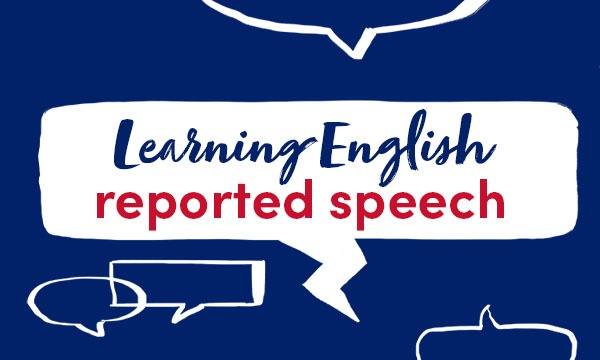
When you use reported speech, the words put into the reported clause do not exactly match the words spoken.
‘I’ll leave at 8.30 on Friday.’ à She says that she will leave at 8.30 on Friday.
‘I’m looking forward to seeing you.’ à She says she’s looking forward to seeing us.
Pronouns and possessive determiners have to change in reported speech because of the change of speaker, e.g. I may become she; you may become us or him.
‘I believe you.’ à She said that she believed us.
‘I’m leaving you.’ à She said that she was leaving him.
‘I’ve finished.’ à She said that she had finished.
Expressions of place and time may also have to change, e.g. here may become there or home; Friday may become in three days’ time.
‘I’ve been here before.’ à She said that she had been there before.
‘I’ll see you on Monday.’ à She said that she would see him in three days’ time.
The verb may also change; the most common change is a change of tense.
‘Hello Jake? It’s me, Penny. I’ve arrived here on time, and I’m going to take a bus to your place. There’s one coming now, so I’d better run.’
She rang to say that she’d arrived there on time and was going to take a bus to our place. Then she said that one was coming at that very moment, so she had to run.
A reporting verb in the present tense can be used in the main clause when you report on a letter or email or on a recent conversation, e.g. a phone conversation.
‘Hello, Jake? I’ve arrived here on time, and I’m going to take a bus to your place.’
Penny has just phoned. She says that she has arrived on time and that she’s coming here by bus.
However, it is more common to use a past tense when reporting speech.
The changes of tense may be summarized as follows:
Direct speech
Reported speech
present simple
present continuous
present perfect
present perfect continuous
past simple
future
becomes
becomes
becomes
becomes
becomes
becomes
past simple
past continuous
past perfect
past perfect continuous
past perfect or past simple
conditional
For further information on English Grammar, visit: https://grammar.collinsdictionary.com/easy-learning
Come back for other blogs on using English in everyday situations: https://blog.collinsdictionary.com/language-learners/learning-english/
All opinions expressed on this blog are those of the individual writers, and do not necessarily reflect the opinions or policies of Collins, or its parent company, HarperCollins.



